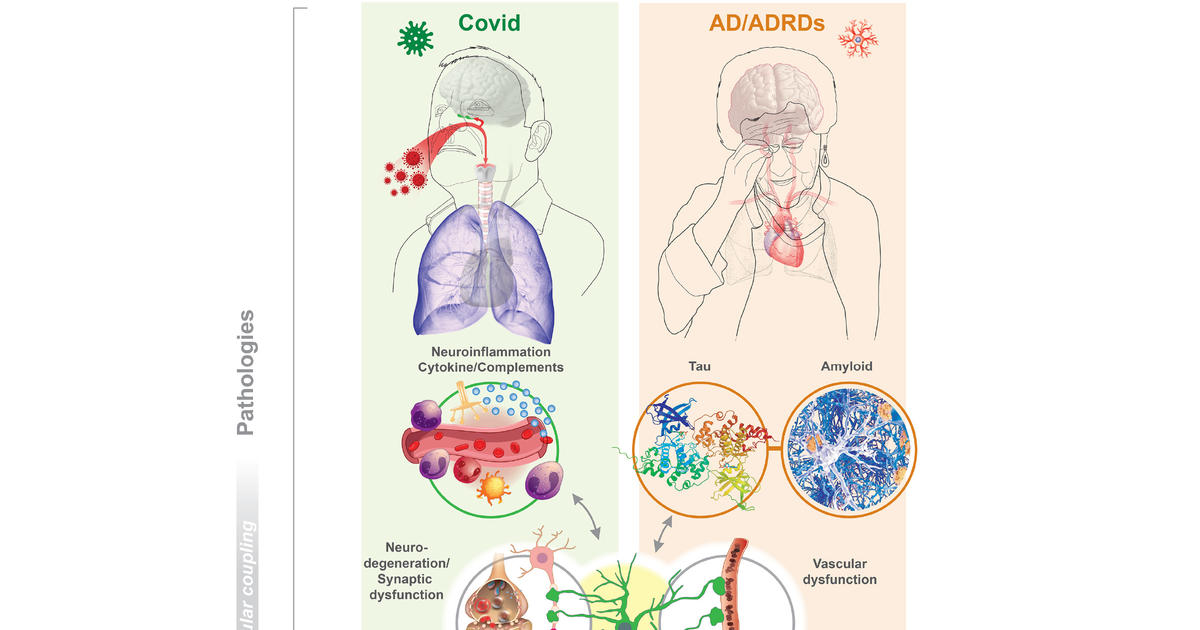Researchers at the University of Kentucky have uncovered striking similarities between the cognitive impairments seen in long COVID patients and those characteristic of Alzheimer’s disease and related dementias. Published in Alzheimer’s & Dementia: The Journal of the Alzheimer’s Association, the study suggests a potential overlap in the brain disorders associated with these conditions, opening new avenues for research and treatment. Funded by various grants, including those from the U.S. National Institutes of Health and the Alzheimer’s Association, the global effort involved experts from six countries.
The team, led by professors Yang Jiang, Chris Norris, and Bob Sompol, focused on the “brain fog” experienced by COVID-19 survivors, noting similarities in brain activity abnormalities and cognitive issues with Alzheimer’s disease. The research highlights the role of neuroinflammation, astrocyte activation, and synaptic dysfunctions in both conditions, suggesting shared underlying biological mechanisms. This discovery underscores the importance of regular brain function monitoring, particularly using electroencephalography (EEG), to detect early brain changes in COVID-19 survivors and those at risk for cognitive decline. The findings advocate for further research into the neural biomarkers of mild cognitive impairment in long COVID patients and emphasize the potential for EEG exams to play a crucial role in patient care by identifying at-risk individuals early and aiding in the prevention or slowing of cognitive decline.
Read more at UKNow…
